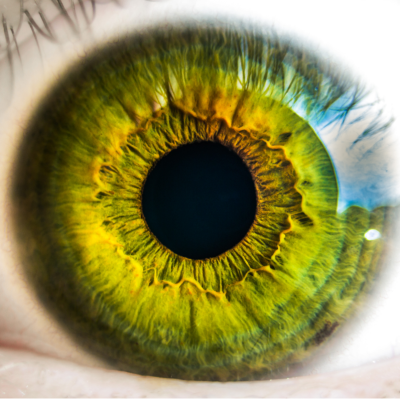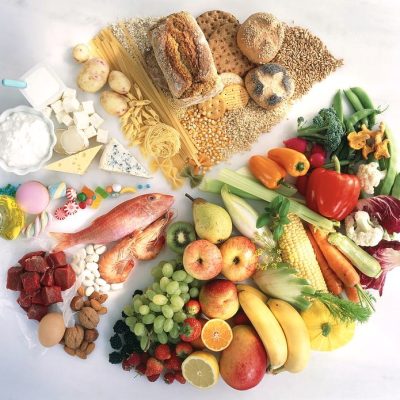Today, I am going to explore a topic that’s often overlooked: the relationship between Diet & Eyesight. It is so important and I can’t believe I haven’t talked about it before! Your eyes are a windows to your overall health and can really impact your quality of life if you find yourself with an eye related health problem.
Welcome if you are new here to 121 Dietitian. I’m Gillian Killiner, founder of 121 Dietitian, and I have been writing blogs for many years on various topics alongside my clinical work. So hopefully you will find some information relevant or interesting to you.
Understanding the Basics – Diet & Eyesight
So what does the eye do? The human eye is a complex organ. It works like a camera by capturing and processing light, which is then transformed into visual information that our brain can understand.
Its well-being relies on a variety of nutrients to function optimally. These nutrients can be obtained through a balanced diet, and they play a crucial role in maintaining good eyesight throughout your life.

So lets look first at foods that could impact negatively on your eye health:
1. Sugary Drinks
Sugary fizzy drinks, energy drinks, sweet tea, and lemonade, high fructose syrups. These beverages are often loaded with sugar, and excessive sugar consumption can increase your risk of developing type 2 diabetes and heart disease. These conditions, in turn, can lead to eye problems like diabetic retinopathy and age-related macular degeneration (AMD). Just to put things in perspective, a single soft drink can contain a whopping 37 grams of sugar! So, it’s wise to be mindful of how many sodas you consume daily.
2. Fish & Shellfish
Fish and shellfish are generally considered healthy sources of protein and essential nutrients. However, they do contain small amounts of mercury. While this isn’t a major concern for most people, certain groups are more susceptible to health problems related to mercury exposure. This includes pregnant women, nursing mothers, and children. For these individuals, it’s recommended to limit fish intake to 2 portions per week to reduce the risk of eye damage.
3. Bread Products
Bread products, such as white bread and pasta, are daily dietary staples for many of us. However, they contain simple carbohydrates that are digested quickly, leading to rapid spikes in blood sugar levels. This can contribute to chronic inflammation, a condition linked to AMD. If you’re worried about the impact of bread products on your eye health, consider limiting your consumption and exploring whole-grain alternatives.
4. Prepackaged Foods
Prepackaged foods are convenient but often not healthy and frequently contain high levels of sodium, which can lead to high blood pressure. Elevated blood pressure, can damage your retina and result in a condition known as hypertensive retinopathy. To reduce your sodium intake, look for “low sodium” labels on canned goods, soups, and sauces when food shopping, but more importantly rethink the amount you use of these products and consider how you can cook with natural ingredients when possible.
5. Processed Meat
Processed meats like bacon, deli meats, sausages are loved by many but can be high in sodium as well. Beyond contributing to hypertensive retinopathy, excessive sodium intake can cause choroidopathy, characterized by fluid buildup under the retina, and neuropathy, which can lead to blockages in blood flow.
So the message here is to watch your salt and sugar intake as this can go a long way in preserving your eye health.
So what can you eat instead? Thankfully there is an abundant variety of foods and fluids that can assist and nourish the eyes.

Key Nutrients for Healthy Eyes
- Preventing Age-Related Eye Conditions: Consuming a diet rich in antioxidants, such as vitamins C and E, can help protect your eyes from the oxidative stress associated with aging and reduce the risk of cataracts and AMD.
- Maintaining Eye Moisture: Omega-3 fatty acids help keep your eyes moist and reduce the risk of dry eye syndrome, which can be uncomfortable and affect your vision.
- Enhancing Night Vision: Adequate intake of vitamin A ensures your eyes can adapt to low-light conditions, which is crucial for night vision.
- Shielding Against Harmful Light: Lutein, zeaxanthin, and beta-carotene act as natural filters, protecting your eyes from harmful ultraviolet (UV) and blue light.
- Promoting Eye Tissue Health: Nutrients like zinc support the health of eye tissues and may reduce the risk of conditions like macular degeneration.
Conclusion – Diet & Eyesight
Our eyes are invaluable, and protecting our vision should be an integral part of our daily life. A diet rich in the right nutrients can play a pivotal role in maintaining and safeguarding eyesight. By incorporating foods rich in vitamins A, C, E, omega-3 fatty acids, zinc, and carotenoids into your daily meals, you are investing in the long-term health of your eyes.
At 121 Dietitian, we understand the importance of nutrition in promoting overall well-being, including eye health. If you’d like personalized guidance on optimizing your diet for better eyesight or any other nutritional concerns, don’t hesitate to reach out. Remember, a nutritious diet isn’t just about looking good; it’s about seeing the world around you safely for years to come.
If you want to book your programme TODAY we would love to help you.
You can book a 121 Dietitian Programme today by clicking on the link below
- Vitamin A: This is perhaps the most well-known nutrient for eye health. Vitamin A helps maintain the health of your cornea, the outermost layer of your eye. A deficiency in vitamin A can lead to night blindness and other vision problems. Vitamin A is found as retinol in meats, dairy, eggs and Beta-carotene in fruits and vegetables.
- Vitamin C: Found in fruits and vegetables like oranges, strawberries, and bell peppers, vitamin C supports the blood vessels in your eyes and can help prevent cataracts and age-related macular degeneration (AMD).
- Vitamin E: Nuts, seeds, and leafy greens are rich sources of vitamin E, which is known for its antioxidant properties. Antioxidants help protect your eyes from damage caused by free radicals.
- Omega-3 Fatty Acids: Found in fatty fish like salmon and flaxseeds, omega-3 fatty acids can help prevent dry eyes and reduce the risk of AMD.
- Zinc: This mineral is crucial for maintaining the health of your retina, and it can be found in foods like lean meats, nuts, and beans.
- Lutein and Zeaxanthin: These carotenoids are found in high concentrations in the retina and can help protect your eyes from harmful light and oxidative damage. Leafy greens like spinach and kale are excellent sources.
- Beta-Carotene: Similar to lutein and zeaxanthin, beta-carotene is found in colorful fruits and vegetables like carrots, sweet potatoes, and butternut squash. It’s converted into vitamin A in the body.